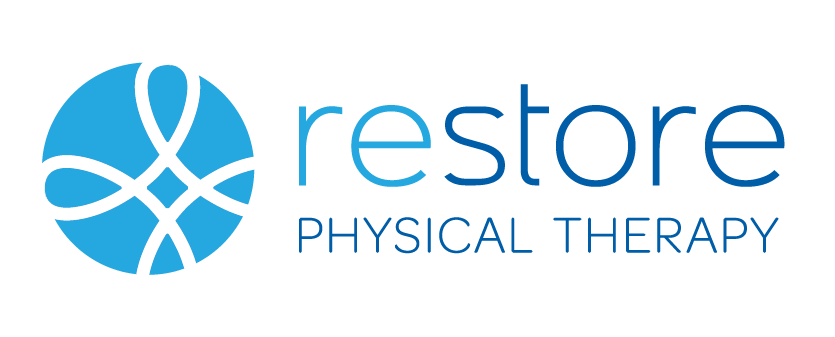Gratitude Is a Practice (and It Changes Everything)
November: the month when gratitude steps into the spotlight.
The approach of Thanksgiving – and its familiar tradition of sharing what you’re thankful for – reminds us how powerful gratitude can be.
But what if it wasn't just seasonal?
What if we practiced gratitude year-round?
We’d all be healthier. The research backs it. Gratitude has profound effects on mindset, physical health, and recovery. It supports your body, your nervous system, and the healing process in ways you might not expect.
In this post, we’ll look at:
how gratitude affects physical health and recovery
why mindset shifts can improve rehab outcomes
simple ways to incorporate being thankful into daily life
Gratitude isn’t just a nice idea. It connects to healing.
Gratitude and the Physical Body
Gratitude might feel like something too small to matter — a pause, a thank you, a shift in perspective — but it can have a real impact on your body and mind.
According to research in a September 2025 article on positivepsychology.com, people who practice gratitude regularly experience lower levels of cortisol (the stress hormone), better sleep, and improved heart function. Other studies they summarized link gratitude to reduced headaches, tension, and fatigue, as well as improved immune function.
In physical therapy, those things matter.
Better rest? More energy? Less stress?
That’s the stuff your body needs to move, adapt, and get stronger.
But beyond the physical, gratitude helps reframe the story we tell ourselves. Instead of thinking, “Why is my body like this?”, the thought becomes: “Thank you, body, for showing me where I need support.”
That small mindset shift opens the door to healing with more clarity, less frustration, and a lot more compassion.
At Restore Physical Therapy, we see this all the time. When patients focus on what’s going well — even the smallest win — they tend to feel more confident, stay consistent, and create the kind of conditions that support lasting recovery.
Gratitude & Mindset Shifts: What the Brain and Body Already Know
Gratitude can change your brain. Literally. Studies show it can rewire your stress response, boost feel-good chemicals, and create a stronger foundation for both emotional and physical resilience.
According to studies summarized in the same positivepsychology.com article, gratitude helps regulate the sympathetic nervous system — the one responsible for our stress and anxiety responses — and activates brain regions tied to emotion, memory, and self-regulation.
That’s good news when it comes to:
managing fear and building emotional resilience
increasing levels of dopamine and serotonin ( your “feel good” chemicals)
learning, adapting, and making decisions
In simple terms?
Gratitude helps your brain stop spiraling, stay calm, and focus on what’s working, not just on what hurts.
Michael, a Restore patient and lifelong athlete, shared how this mindset shift changed everything:
“What Amanda has enabled me to do is as soon as I think, ‘I'm never going to get better,’ the next thought is, ‘Well, I know what I have to be doing.’ Just knowing what to do is really important for the mental aspect of it.”
That kind of shift — from stuck to seeing possibility — is what can make the difference in showing up, staying consistent, and ultimately healing.
It’s a Practice (Not a Personality Trait)
Gratitude doesn’t require a journal, a perfect morning routine, or a sunny personality.
It’s a skill. One that gets stronger with repetition.
Like strength, it’s built one rep at a time:
a pause
a moment of appreciation
a shift in focus
And like movement, the more you practice it, the more it supports you – emotionally and physically.
Here are a few simple ways we’ve seen it work well:
✅ Three wins a day – jot them down or say them out loud (yes, small ones count).
✅ Thank your body – especially after movement, effort, or rest.
✅ Share a win out loud – with a friend, loved one, or your PT!
These practices might sound simple, but over time, they support your body, your mindset, and your momentum.
As Restore patient Lynn B. shared:
“Every month since seeing Amanda, I hit little milestones … It’s literally changed my life for the better. It’s enhanced my day-to-day relationships. I feel more confident, and my emotional and physical health are better.”
Gratitude practices might start small, but practiced over time, it can change not just how you heal, but how you live.
Our Gratitude for You
We are so very grateful to partner with you in your journey to better health.
Grateful for your trust. Your effort. Your story.
For the way you continue to show up — even when it’s hard, even when progress feels slow.
We’re thankful for every conversation, every win, every step forward – no matter how big or small – that we’ve been part of, or that you’ve shared with us. Your presence in this community means so much to us.
Whether you’re rehabbing an injury, working toward a new milestone, or maintaining your strength, please know this: we see you. We’re proud of you. And we’re grateful that you’re part of the Restore PT family
Final Thoughts
Gratitude isn’t about pretending the tough stuff doesn’t exist, that everything is sunshine and rainbows. It’s about learning to notice what is working and starting right there.
It’s about giving yourself credit for:
showing up
trying
trying again
asking for support
At Restore, we believe that movement and mindset are linked. We see it every day in you, and in our own practices. The small wins are worth celebrating. And healing is more than rehab: it’s living the life you enjoy.
If you’re ready to reconnect with your body and build a plan that supports both strength and perspective, we’re always here – and always grateful – for you.
Whenever you’re ready, we’ll help you start where you are.
